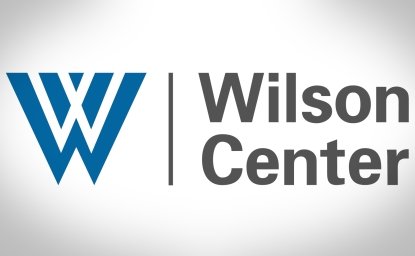Senior Scholar Discusses Aid for Trade
Senior Scholar John Sewell has planned several Wilson Center conferences on trade issues, most recently a particularly timely one on Aid for Trade.
Senior Scholar John Sewell has planned several Wilson Center conferences on trade issues, most recently a particularly timely one on Aid for Trade.
John W. Sewell joined the Wilson Center three years ago to analyze and write on globalization, development, and U.S. foreign policy. He remains a senior scholar at the Center, researching, writing, and organizing conferences such as one on "Aid for Trade" that took place on June 6.
The conference was particularly timely. More than 100 developed and developing countries are involved in the current Doha Trade negotiations. Sewell said, "We're approaching a critical moment at the end of July," when a framework agreement must be developed and agreed upon so that negotiations can conclude by early 2007.
Sewell, who designed the conference, said a central agenda item is assisting poorer developing countries to take advantage of new opportunities to sell their products abroad. This involves creating capacities to negotiate, implement new trade agreements, and also to invest in overall infrastructure such as roads and ports.
The conference examined ways to improve Aid for Trade (A4T) and ensure it is incorporated into trade agreements, while exploring what developing countries need and what development agencies can do to help.
"For the first time in global trade negotiations, there's a direct link between negotiations to liberalize trade and promoting development," Sewell told Centerpoint. The Center's Science, Technology, America, and the Global Economy Program (STAGE) took the lead in hosting a conference.
"It's an interesting conjuncture at a time when negotiators greatly need input into the negotiations," he said. "This conference should have a direct impact on policy discussions."
Conference participants included policymakers from countries that are ‘users' of aid for trade, and representatives from development agencies—the ‘providers' of aid—and the private sector. Profit and nonprofit groups now are important players in building trade capacities. For example, Fed Ex is interested in competent custom services to expedite shipping. Procter & Gamble sells many items through local affiliates, while stores such as Wal-Mart and the Gap import consumer items. In fact, Wal-Mart alone buys 12 percent of China's exports.
"There is a dynamic where trade negotiators want the best deal for their countries and development agencies want to do good things that also are in the national interest," said Sewell. "So to reduce poverty and spur economic growth and better health, both are learning to work together."
Sewell has helped plan several Wilson Center conferences including one last year on the impact of trade liberalization on poverty. He said, "The impact of trade liberalization depends upon what the country produces, what kind of government it has, and whether it spreads the benefits equitably in the country."
"When we talk about development, people think of aid," he said. "But, in reality, trade and international finance now are much more important. We have a set of international institutions that were designed to deal with the post-World War II world. But the world has changed. Economic growth in the past half-century has been unprecedented. Today, people are better off and living longer. However, our current institutions need modification to deal with the future."
Sewell previously served as president of the Overseas Development Council (ODC), a U.S.-based international policy research institute.



